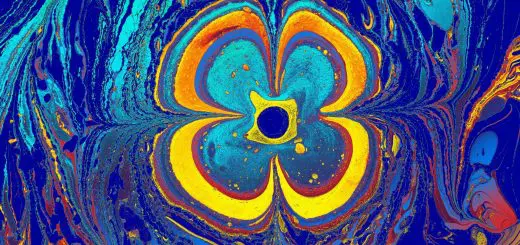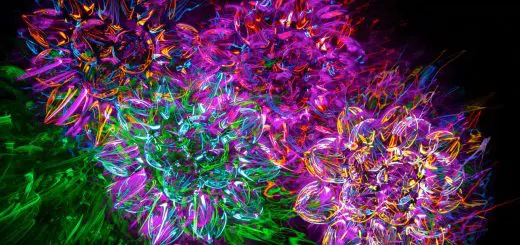Unseen Realms: Mystical Experiences Explored

Looking for more amazing products? Check out our online store and explore our collection here! Happy shopping!
Before diving in, please note: This post is for informational purposes only. If you’d like to know more about how we approach topics, feel free to check out our friendly Disclaimer Page.
Hey there, amazing readers! 
We’re committed to delivering quality posts, and your support (even just sticking around despite the ads) means everything to us. So, bear with us, and thanks for helping us keep the good vibes rolling. Now, on to the fun stuff!
TRANSLATE BUTTON AT THE END OF THE ARTICLE
Overview
Unseen Realms: Mystical Experiences Explored
Mystical experiences have fascinated humans for centuries.
These otherworldly encounters, often described as glimpses into unseen realms, encompass a vast range of phenomena that transcend ordinary human perception.
From near-death experiences to feelings of transcendence, mystical experiences have captivated the minds of philosophers, scientists, and spiritual seekers alike.
This article delves into the depths of mystical experiences, shedding light on their elusive nature, various types, and the role belief systems play in shaping these encounters.
We will explore the scientific perspectives that attempt to unravel the mysteries surrounding these phenomena, including the neurological basis of mystical experiences.
Furthermore, we will delve into how different religious traditions embrace and interpret mystical encounters, as well as the profound connection between nature and mystical experiences.
Finally, we will examine the role of psychedelics in inducing altered states of consciousness and how mystical experiences can be harnessed for personal growth.
Defining Mystical Experiences: An Elusive Concept
Defining mystical experiences proves to be a challenging task, as they often transcend the boundaries of language and rational understanding.
Mysticist and writer Evelyn Underhill described these encounters as "direct awareness of God." However, mystical experiences are not solely confined to the religious domain.
Psychologist William James proposed a broader definition, encompassing any profound experience that surpasses the limits of ordinary perception and offers a sense of unity with something greater than oneself.
Types of Mystical Experiences: From Near-Death to Transcendence
Mystical experiences come in various forms, each offering a unique glimpse into the unseen realms.
One of the most well-known types is the near-death experience (NDE), where individuals report vivid encounters while on the brink of death.
These experiences often involve feelings of peace, traveling through a tunnel, and encounters with deceased loved ones.
Another type of mystical experience is known as a transcendental experience.
These moments of heightened awareness and connection with a higher power can occur spontaneously or through meditation practices, leading to a sense of unity with the universe or divine entities.
Transcendental experiences can be deeply transformative, altering one’s perspective on life and the self.
The Role of Belief Systems in Mystical Experiences
Belief systems play a significant role in shaping mystical experiences.
Cultural and religious backgrounds heavily influence the interpretation and understanding of these encounters.
The concepts and symbols present in each individual’s belief system shape their perception of the unseen realms.
For example, a person with a Christian background may interpret a mystical encounter as an encounter with God, while someone with a Buddhist background may interpret it as an encounter with enlightenment.
Belief systems also affect the initiation and cultivation of mystical experiences.
Practices such as prayer, meditation, and ritual can create a conducive environment for individuals to open themselves up to these encounters.
By engaging with specific beliefs and practices, individuals increase their likelihood of having mystical experiences.
Scientific Perspectives: Examining Mystical Phenomena
While mystical experiences have long been associated with spirituality, science has also taken an interest in exploring these phenomena.
Researchers from various fields, including neuroscience and psychology, seek to uncover the underlying mechanisms and explanations for these encounters.
Psychologists often study the subjective experiences of individuals who have had mystical encounters, aiming to understand the psychological impact and potential benefits.
Neuroscience researchers utilize brain imaging techniques to analyze the neural correlates of mystical experiences, attempting to identify the specific brain regions involved in these encounters.
Unraveling the Neurological Basis of Mystical Experiences
Advancements in neuroscience have shed light on the neurological basis of mystical experiences.
Understand the Powerful Law of Karma and Its Impact – Explore Here!
Studies utilizing neuroimaging techniques have revealed that certain brain regions, such as the prefrontal cortex and the limbic system, are involved in these encounters.
The prefrontal cortex, responsible for higher cognitive functions, may play a role in the sense of self-transcendence often reported during mystical experiences.
The limbic system, involved in emotions and memory, might contribute to the intense feelings of awe and ecstasy experienced during these encounters.
Additionally, the brain’s default mode network (DMN), which is active during self-reflection and mind-wandering, has been implicated in mystical experiences.
Alterations in the activity and connectivity of the DMN have been observed during meditation and psychedelic-induced mystical experiences, suggesting a link between these states of consciousness.
Connecting with the Divine: Mysticism in Religious Traditions
Mystical experiences hold significant importance in various religious traditions worldwide.
In Christianity, mysticism is often associated with the direct union with God.
Mystical encounters are seen as a means to deepen one’s relationship with the divine and gain profound insights into spiritual truths.
Christian mystics, such as St.
Teresa of Avila and Meister Eckhart, have left behind invaluable writings that offer guidance on cultivating mystical experiences.
Similarly, Sufism, the mystical branch of Islam, places great emphasis on the direct experience of God.
Sufi practitioners engage in practices such as dhikr (remembrance of God) and meditation to attain states of ecstasy and unity with the divine.
Mystical Experiences in Nature: Awe and Ecstasy Unveiled
The natural world has long been regarded as a fertile ground for mystical encounters.
The awe-inspiring beauty and grandeur of nature can trigger deep feelings of transcendence and interconnectedness.
Whether it be standing before a majestic mountain range or gazing at the vast expanse of the night sky, nature has the power to evoke mystical experiences.
Researchers have found that exposure to nature leads to a decrease in stress levels and an increase in positive emotions.
These emotional states, combined with a sense of unity and connection with the natural world, can create the perfect conditions for mystical encounters.
This connection between nature and mystical experiences highlights the importance of preserving and appreciating the wonders of the natural world.
The Power of Psychedelics: Exploring Altered States of Consciousness
Psychedelics, such as psilocybin mushrooms and LSD, have been used for centuries in various cultures to induce altered states of consciousness and facilitate mystical experiences.
These substances have the ability to temporarily alter perception, leading to profound shifts in awareness and a dissolution of the ego.
Recent studies have shown that psychedelics can indeed induce mystical experiences in a clinical setting.
These experiences have been associated with long-lasting positive changes in personality, mood, and overall well-being.
The therapeutic potential of psychedelics in treating mental health conditions, such as depression and post-traumatic stress disorder, is currently being explored.
Harnessing Mystical Experiences for Personal Growth
Mystical experiences offer a unique opportunity for personal growth and transformation.
When approached with intention and openness, these encounters can bring about profound insights, increased compassion, and a greater sense of purpose in life.
By harnessing the lessons and wisdom gained from mystical experiences, individuals can embark on a journey of self-discovery and spiritual development.
Practices such as meditation, prayer, and reflection can help cultivate a receptive state of mind, increasing the likelihood of mystical encounters.
Additionally, integrating the lessons learned from these experiences into daily life and engaging in practices that foster personal growth and self-awareness can further enhance the transformative potential of mystical encounters.
Conclusion
Unseen Realms: Mystical Experiences Explored has taken us on a profound journey into the depths of mystical encounters.
We have explored the various types of mystical experiences, from near-death encounters to transcendental moments of unity with the divine.
Belief systems have been shown to shape and influence these encounters, while scientific perspectives have provided insights into the neurological basis of mystical experiences.
The connection between nature and mystical experiences has highlighted the awe-inspiring power of the natural world.
Furthermore, the exploration of psychedelics has revealed their ability to induce altered states of consciousness and facilitate mystical encounters.
Lastly, we have discussed how mystical experiences can be harnessed for personal growth and transformation.
In the face of the mysterious and profound, the exploration of mystical experiences continues to captivate and inspire.
Whether through the lens of spirituality, science, or personal growth, these encounters offer glimpses into the unseen realms, expanding our understanding of the human experience and our connection to something greater than ourselves.

The Enlightenment Journey is a remarkable collection of writings authored by a distinguished group of experts in the fields of spirituality, new age, and esoteric knowledge.
Release the Weight of Karma and Embrace Freedom – begin here.
This anthology features a diverse assembly of well-experienced authors who bring their profound insights and credible perspectives to the forefront.
Each contributor possesses a wealth of knowledge and wisdom, making them authorities in their respective domains.
Together, they offer readers a transformative journey into the realms of spiritual growth, self-discovery, and esoteric enlightenment.
The Enlightenment Journey is a testament to the collective expertise of these luminaries, providing readers with a rich tapestry of ideas and information to illuminate their spiritual path.
Our Diverse Expertise
While our primary focus is on spirituality and esotericism, we are equally passionate about exploring a wide range of other topics and niches 

To ensure we provide the most accurate and valuable insights, we collaborate with trusted experts in their respective domains 
Our blog originally focused on spirituality and metaphysics, but we’ve since expanded to cover a wide range of niches. Don’t worry—we continue to publish a lot of articles on spirituality! Frequently visit our blog to explore our diverse content and stay tuned for more insightful reads.
Hey there, amazing reader! 
Check out our store here and take a peek at some of our featured products below! Thanks for being awesome!
















